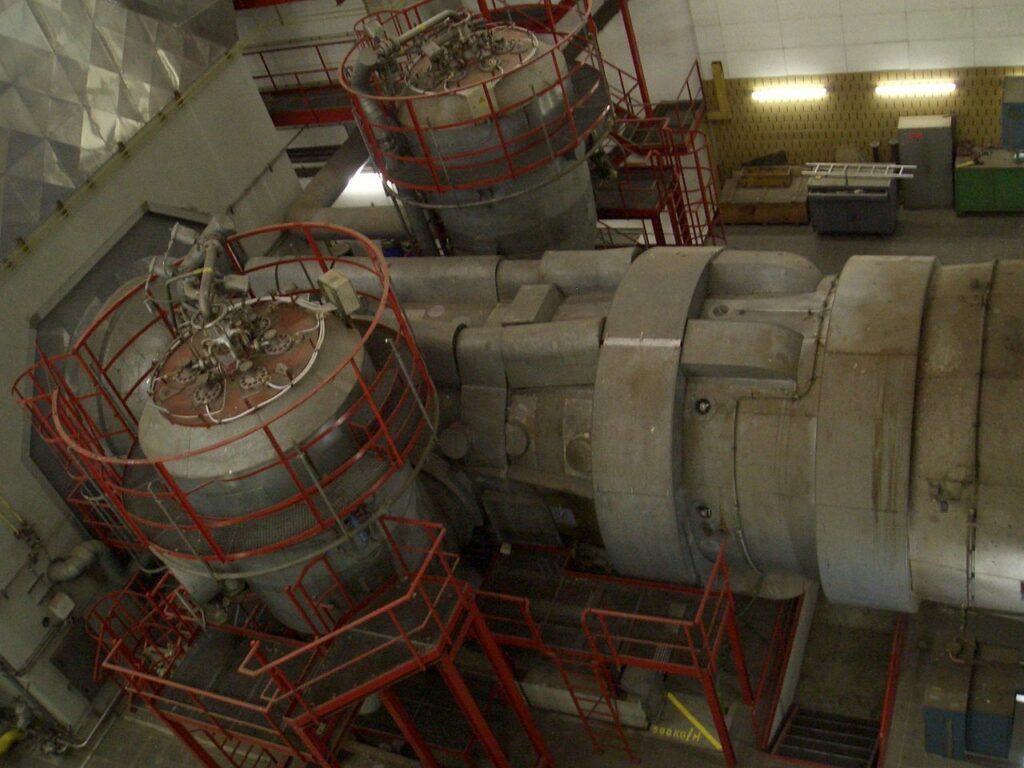Large energy consumers from industry are considering limiting the use of gas-fired power plants. The goal is to conserve gas reserves. While the Association of the Industrial Energy and Power Industry (VIK) is backing coal-fired power plants, Habeck advocates a pragmatic approach.
VIK relies on coal-fired power plants to conserve gas reserves
The Association of the Industrial Energy and Power Industry (VIK) wants to use gas-fired power plants only as a last resort. Instead, the increased use of coal-fired power plants should help to conserve gas reserves. The situation on the energy markets continues to come to a head. The VIK sees a pause in the plans for the decommissioning auctions of hard coal-fired power plants as sensible.

Image: Wdwd, CC BY-SA 3.0, via Wikimedia Commons
Specifically, the Association proposes in a draft resolution for the VIK Board to postpone the statutory decommissioning dates for lignite-fired power plants in 2022 and 2023 to the end of 2024. The association also considers it necessary to review the planned decommissioning of nuclear power plants at the end of the year. According to the plan, natural gas power plants will replace nuclear power plants in the future. This causes additional problems. According to the association, postponing the decommissioning dates has the potential to double the current natural gas consumption of power plants that only supply electricity.
The demands of the VIK show that many companies in industry are alarmed. Bottlenecks in gas supply are to be expected in the coming winter at the latest. To prevent these, many stakeholders already want to reduce gas consumption to a minimum. In this way, the reserves of the gas storage facilities are conserved.
Because of the tense situation, the Federal Network Agency is currently conducting a survey among the large gas consumers. The agency’s task is twofold: on the one hand, it is a general assessment of demand. On the other hand, the agency wants to find out which companies are systemically important and whether they will be particularly affected by an interruption or reduction in the gas supply.
Klaus Müller, head of the Federal Network Agency, suggests another possibility in view of the tense situation: In the case of supply interruptions, he thinks the introduction of an auction system makes sense. Some economists are also in favour of this idea.
Habeck does not rule out extending the use of coal-fired power plants
Already at the beginning of March, the Federal Minister of Economics, Robert Habeck (Greens), advocated a pragmatic approach to managing shortage situations. Russia’s attack on Ukraine has clearly shown how important it is for Germany to be independent in terms of energy policy. In order to reduce dependence on Russia, that is why Habeck no longer rules out extending the use of coal-fired power plants.
The ministry is currently examining where additional power generation capacity – other than gas – could come from in the coming winter. This step is aimed at saving gas. However, a proposal from the ministry is still pending. As far as the tenders for the shutdown of hard coal-fired power plants are concerned, the ministry is against a postponement. The reasoning behind the decision is that the upcoming tenders for decommissioning will not be an issue for several years.
The Association of the Industrial Energy and Power Industry (VIK) takes a critical view of this, because time is pressing. A lot of time has already passed since the beginning of the war. Nevertheless, according to the association, potentials are not being used to conserve gas reserves. VIK Managing Director Christian Seyfert therefore appeals to the Federal Government to remedy the situation immediately.
Slight easing of gas stocks in Rehden
There is currently a slight easing of the situation with regard to gas stocks: The Federal Network Agency reports that Germany’s largest natural gas storage facility in Rehden has filled up slightly. The gas storage facility is operated by Astora – a wholly owned subsidiary of Gazprom Germania. The Federal Network Agency has been acting as trustee for the company since 4 April. In this way, it prevents the Russian state-owned company Gazprom from objecting to the filling.
